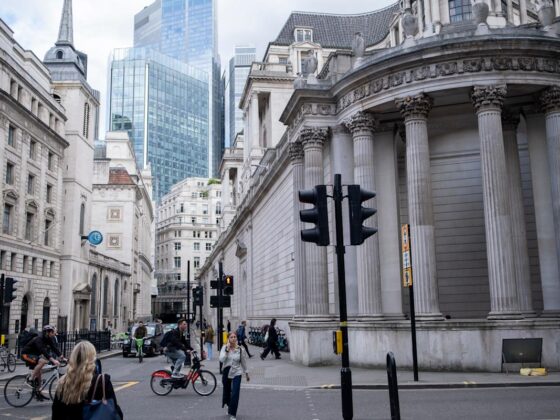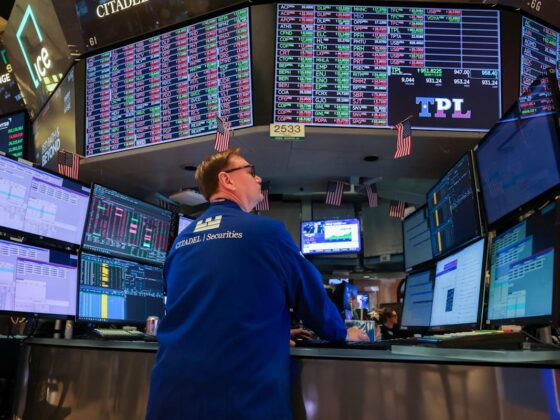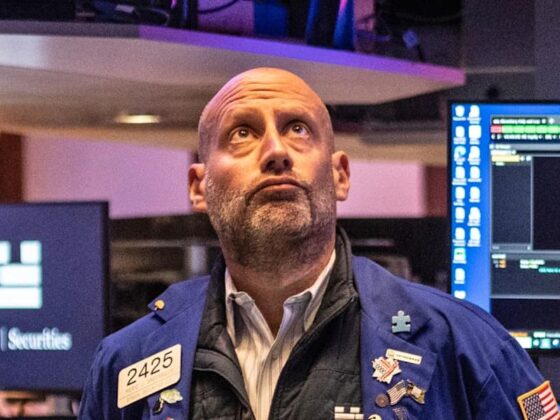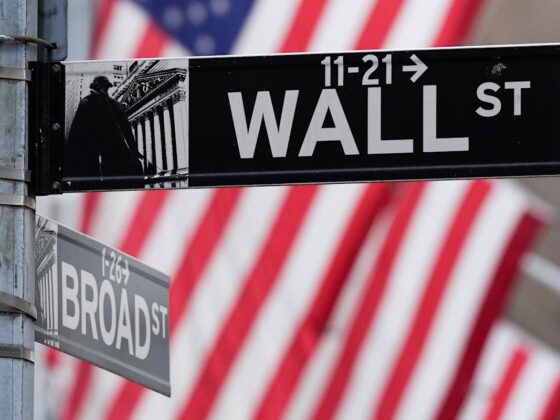Walmart, Visa, and Coca-Cola are all long-term winners.
The Dow Jones Industrial Average, which tracks the 30 most prominent companies in America, is a good starting point for finding some reliable blue chip stocks. Over the past decade, the Dow rose nearly 180% even as the pandemic, inflation, soaring interest rates, geopolitical conflicts, and other macro headwinds rattled the global economy.
But not all of the Dow stocks are long-term winners. Over the past five years, Disney‘s (NYSE: DIS) stock declined nearly 10%, Nike‘s (NYSE: NKE) stock tumbled 33%, and UnitedHealth (NYSE: UNH) stayed nearly flat. Those stocks might initially seem like sound investments, but they all faced difficult challenges: Disney racked up steep losses as it expanded its streaming platforms, Nike cannibalized its wholesale channels with its own first-party stores, and UnitedHealth was dogged by billing and coverage controversies.
So, instead of hoping those laggards will stabilize their businesses, investors should stick with these three leaders of the Dow, which should keep rising in 2025 and beyond: Walmart (WMT -0.49%), Visa (V -2.28%), and Coca-Cola (KO -0.45%).
Image source: Getty Images.
Walmart
Walmart, the world's largest retailer, operates more than 10,750 stores and warehouse clubs across 19 countries. It also operates smaller regional banners and e-commerce websites. Over the past decade, it expanded its e-commerce marketplace, upgraded its shipping and curbside pickup options, matched Amazon‘s prices, and launched more private label brands. It also leveraged its massive network of stores to fulfill its online orders.
Walmart's scale and diversification help it grow at a faster and more consistent rate than many other brick-and-mortar retailers. It's exposed to higher tariffs on Chinese goods, but it could offset some of that pressure by negotiating new deals with those suppliers.
From fiscal 2025 to fiscal 2028 (which ends in Jan. 2028), analysts expect Walmart's revenue and earnings per share (EPS) to grow at a CAGR of 5% and 10%, respectively, as it upgrades its stores with more tech-forward features, expands its integrated advertising business, automates more of its warehouses, and rolls out more AI upgrades across its e-commerce ecosystem. Its stock isn't cheap at 34 times next year's earnings, but its strengths support that higher valuation.
Visa
Visa operates the world's largest network for credit card payments. There are 4.7 billion Visa cards in circulation today, but the company didn't actually issue any of those cards. Instead, Visa only partners with banks and other institutions to issue co-branded cards. Those partners handle those accounts and collect the payments.
Visa generates its revenue by charging merchants a “swipe fee” (roughly 1.5% to 3.5% of each transaction) for accessing its payment network whenever those cards are used. That capital-light model insulates it from credit crunches and other macro headwinds. It also makes it a good evergreen stock to hold during bear and bull markets.
Visa faces constant pressure from businesses and regulators to reduce its swipe fees, but its scale gives it tremendous bargaining power. If businesses stop accepting Visa cards, they could lose a lot of customers — so they'll likely keep paying its “toll road” fees.
From 2024 to 2027, analysts expect Visa's revenue and EPS to grow at a CAGR of 10% and 14%, respectively. It's still reasonably valued at 28 times next year's earnings, and it has plenty of room to grow as interest rates decline and the macro environment stabilizes.
Coca-Cola
Coca-Cola, the world's largest beverage maker, is another evergreen stock. Soda consumption rates are declining across the world, but it offsets that pressure by selling teas, fruit juices, bottled water, sports drinks, coffee, and even alcoholic drinks. It's also refreshing its flagship sodas with new flavors and smaller serving sizes to reach more customers.
Coca-Cola only produces and sells concentrates and syrups. Its independent bottling partners are actually responsible for producing and distributing the finished beverages. That capital-light business model enables it to maintain high margins and generate plenty of cash to support its dividend, which it's raised annually for 63 consecutive years. It still pays a forward dividend yield of nearly 3% — while Walmart and Visa pay lower forward yields of less than 1%.
From 2024 to 2027, analysts expect Coca-Cola's revenue and EPS to grow at a CAGR of 5% and 11%, respectively. It trades at just 22 times next year's earnings, and it should easily outperform a lot of the other dustier Dow stocks for the foreseeable future.
Leo Sun has positions in Amazon. The Motley Fool has positions in and recommends Amazon, Nike, Visa, Walmart, and Walt Disney. The Motley Fool recommends UnitedHealth Group. The Motley Fool has a disclosure policy.













